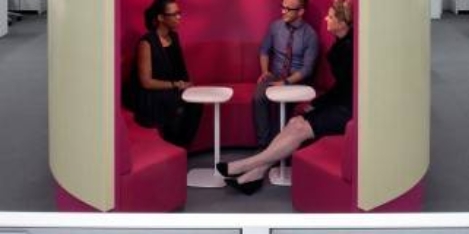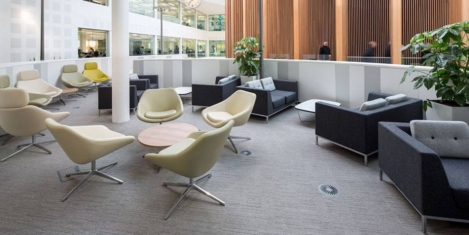October 13, 2016
Collaborative spaces are replacing the traditional office boardroom 0
 Connectivity and flexible working means that office meetings are shrinking in size as employees fail to show up to almost half of scheduled meetings; leaving the traditional large workplace boardroom obsolete. Teem’s Workplace Productivity Analytics Index carries out a regular aggregated analysis of meeting room data from over 2,000 customers worldwide and found that globally, only six percent of meetings have 10 or more attendees, while 76 percent of meetings include only one to three participants. In addition, 20 percent of meetings are booked within 15 minutes of taking place, making it difficult for facilities and IT managers to plan suitable space and secure equipment needs for employees. The data also claims that large meetings can drain productivity, which is why businesses are increasingly investing in large conference rooms and instead opt for collaborative spaces where smaller groups can meet privately.
Connectivity and flexible working means that office meetings are shrinking in size as employees fail to show up to almost half of scheduled meetings; leaving the traditional large workplace boardroom obsolete. Teem’s Workplace Productivity Analytics Index carries out a regular aggregated analysis of meeting room data from over 2,000 customers worldwide and found that globally, only six percent of meetings have 10 or more attendees, while 76 percent of meetings include only one to three participants. In addition, 20 percent of meetings are booked within 15 minutes of taking place, making it difficult for facilities and IT managers to plan suitable space and secure equipment needs for employees. The data also claims that large meetings can drain productivity, which is why businesses are increasingly investing in large conference rooms and instead opt for collaborative spaces where smaller groups can meet privately.






























October 7, 2016
Are we seeing the workification of home or the homification of work? 0
by Anna King • Comment, Flexible working, Workplace design
(more…)